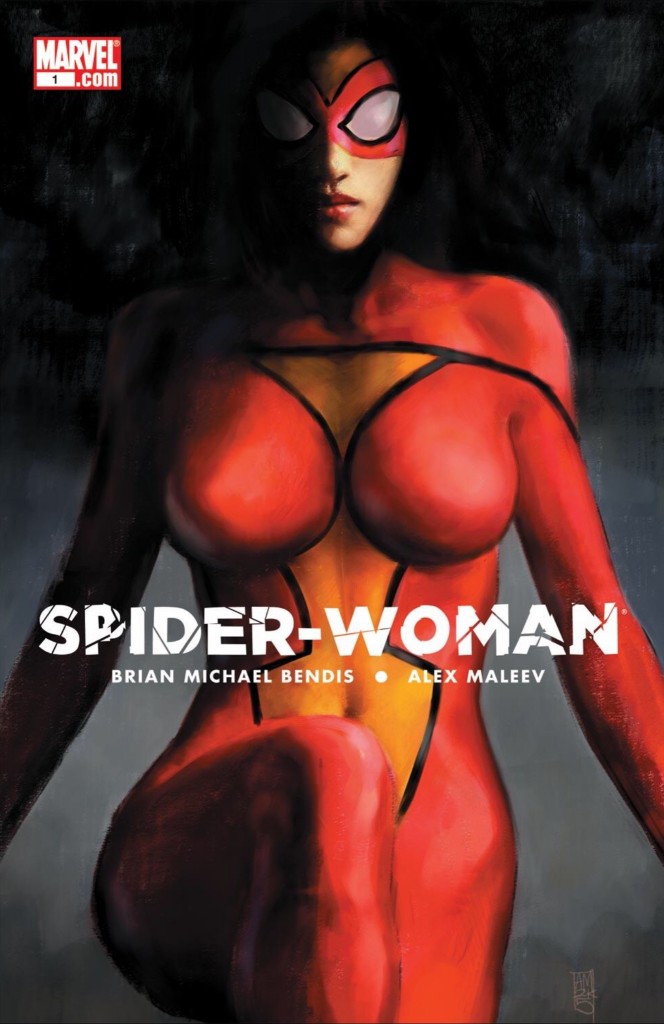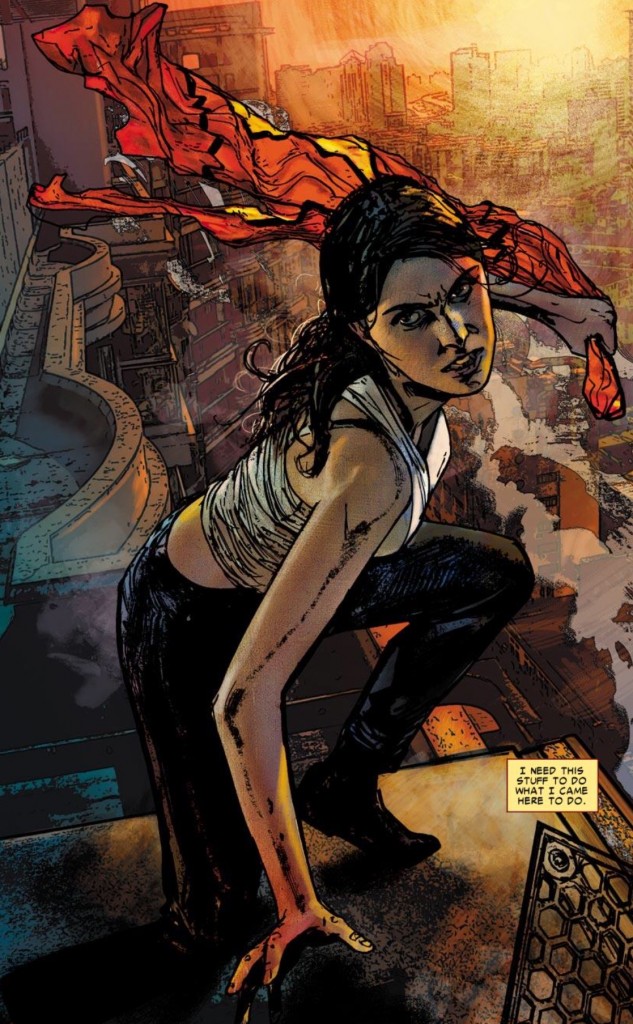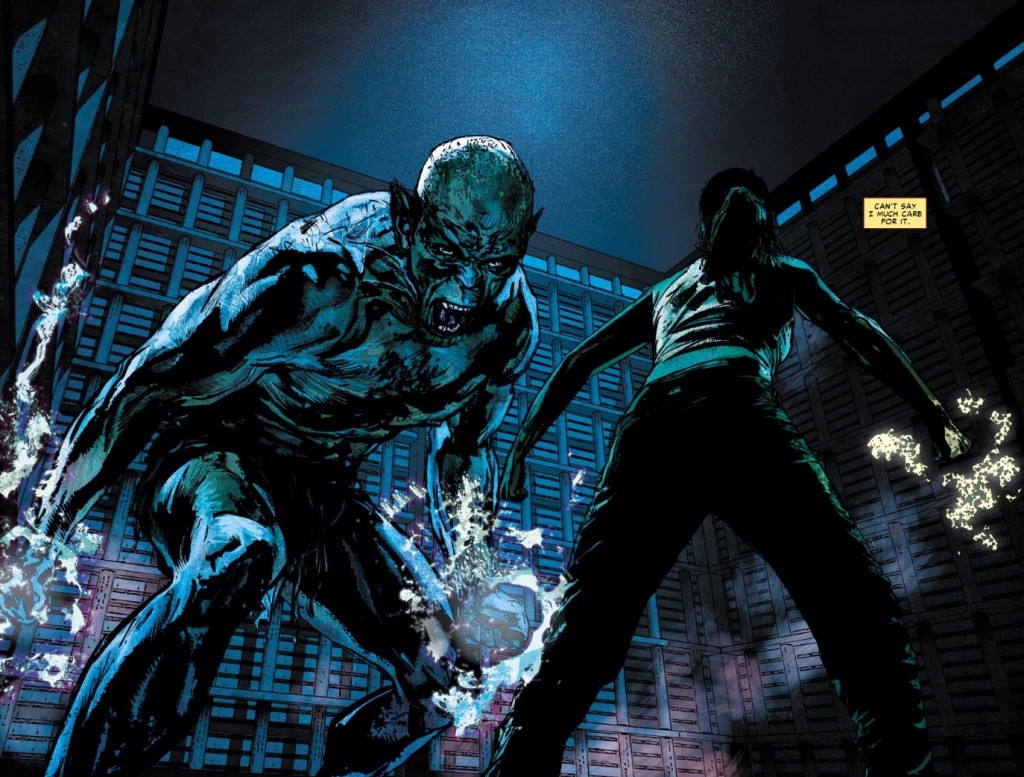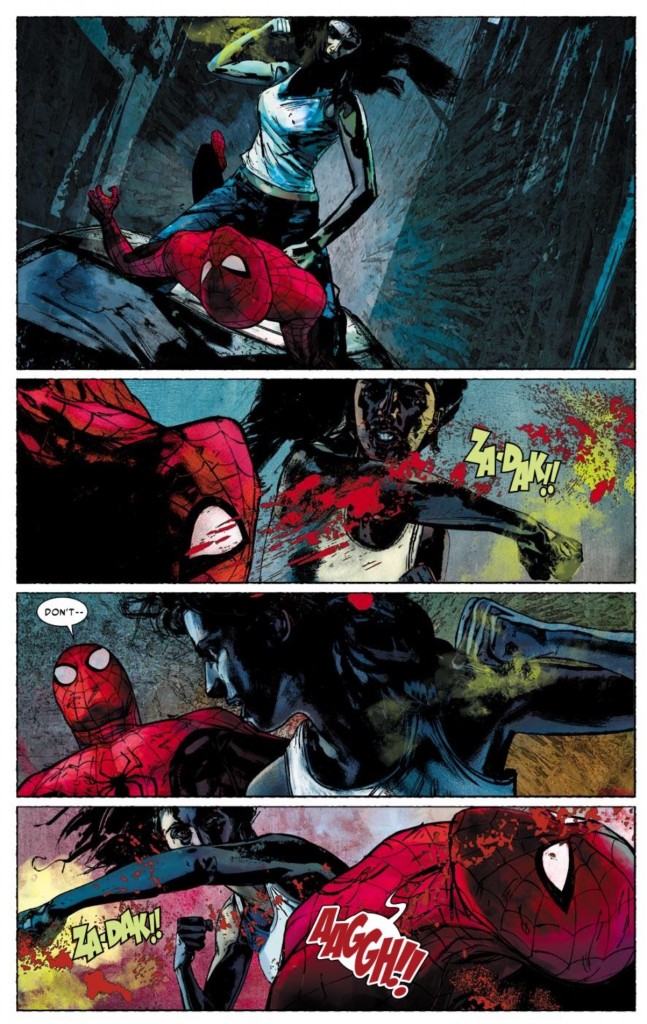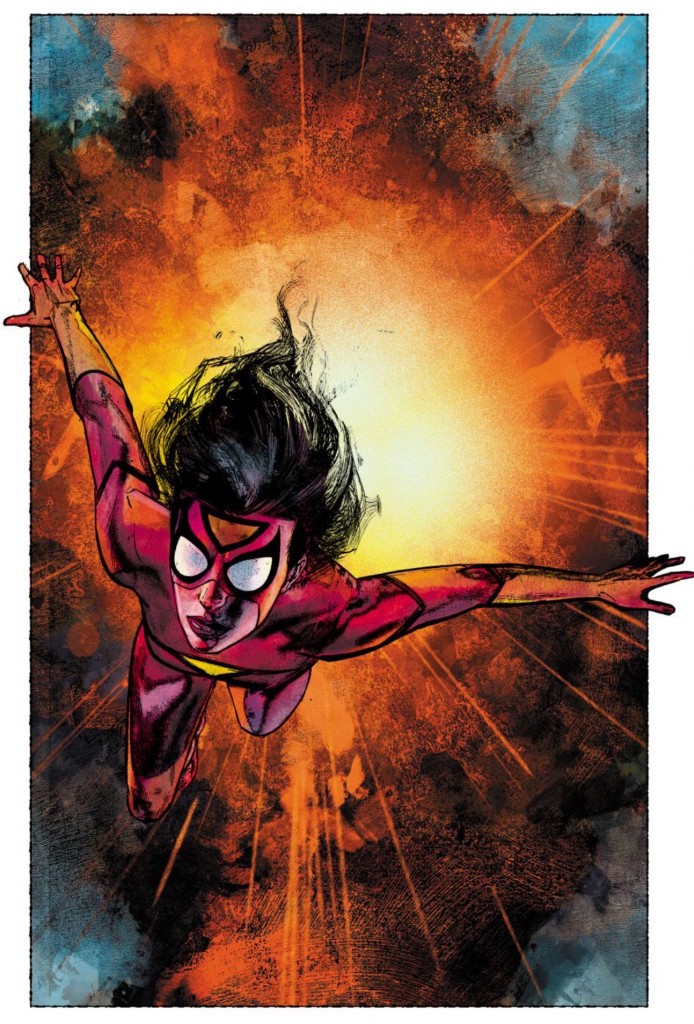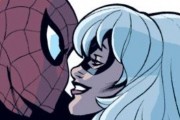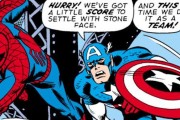It’s been a quiet week for new releases, so that means there’s time for me to plow through one more Reader Request entry before the end of the year.
Via Twitter, Altonncf, a very good friend of both this site and the Amazing Spider-Talk podcast, requests a lookback at the Brian Michael Bendis/Alex Maleev limited series (naturally I can’t locate the original tweet but trust me, he requested it!). Well, who am I to deny a dedicated reader/listener of my comic book nonsense some more nonsense for him to consume. Thanks Altonncf!
Spider-Woman captures everything I both love and disdain about Bendis as a comic book writer in one fell swoop. Though, in order to be totally fair about any of the criticism I’m about levy against this comic (and since it’s a Bendis comic, you have to figure my issue is going to be about the book’s pacing) I do need to provide some context about the construction/direction of this series.
Apparently, when the book was first published in 2009, it was not intended to be a seven-issue limited series but rather a serial ongoing. However, Marvel also wanted to use the book as a guinea pig for its new “motion comic” format. As Bendis explains in the letters section of the final issue, preparing a motion comic required an extraordinary amount of time from Maleev – who is a phenomenal artist by the way – and after seven issues Maleev apparently got burned out by the process and the project was abruptly wrapped up.
Unfortunately, even with Bendis’s letter to readers explaining the situation, that doesn’t change how caught off-guard most readers were by the series just ending. And that confusion/frustration was exacerbated when you take into account how the entire series reads at the slow-plodding, decompressed pace that Bendis has all but trademarked in the comic book industry. In the context of an ongoing book like Ultimate Spider-Man, this character-centric, light-on-plot approach is absolutely forgivable. But in the case of Spider-Woman, it comes across as being anti-climatic – especially the book’s ending which just begs for Jessica Drew’s story to continue somewhere else the following month.
But in terms of a series being a wonderful dissection of a character in a very unique and difficult spot in her life, Spider-Woman is a triumph, and unquestionably my all-time favorite depiction of Jessica. Yep, that’s Bendis for you – it drives me absolutely batty that I can’t just universally love or hate how this guy writes a comic. It’s always much more complex than that.
In terms of its timing, Spider-Woman comes right on the heels of Secret Invasion, when a Skrull version of Jessica is revealed to be the Queen, which, as you might imagine, was a bit of a career-killing move for Drew, despite the fact that her being unveiled as an alien bent on conquering Earth was hardly her fault. So Jessica decides to take off on the lonely street of dreams until she is recruited by Agent Victoria Brand of S.W.O.R.D. – a federal agency geared towards eradicating intergalactic threats on Earth (in addition to be another agency, like S.H.I.E.L.D., which is a pain in the ass to write out in a blog post – so don’t ask me to do it again).
Of course, this story is about much much more than just Jessica getting to work in a new agency (she does have plenty of experience in S.H.I.E.L.D. and Hydra). What S.W.O.R.D. ultimately presents for Jessica is an opportunity for her to exact more vengeance against the Skrulls, while also being a part of something that makes her feel welcomed. The Secret Invasion/Skrull Queen experience has clearly damaged Jessica emotionally, which Bendis really keys in on, helping to add tension to the comic’s few moments of true superhero drama. When Jessica is nose-to-nose with a Skrull agent for the first time (disgused as Spider-Man no less), there’s an air of unpredictability as to how far she will go to punish this alien race that ruined her standing and reputation.
The series also has a lot of fun of demonstrating Jessica’s pheromone powers and how she can use them to both get people to like her and to “scare the piss out of them” as she so aptly describes. We got a little bit of this powerset recap in the current Spider-Woman #2, but Bendis’s depiction is just more joyful and empowering when compared to how Jessica was all but throwing her physical wares around to trap the Inheritors in “Spider-Verse.” She explains both the advantages and pratfalls of her powers (she can’t just aim in at someone and thus, other unintended people can be affected when in a crowded area) in a way that nods and winks at the reader.
Bendis delivers the “we all love you Jessica Drew” ending (also known as the It’s a Wonderful Life ending) when the Avengers show up in Madripoor to help Jessica out as she’s battling one very scary looking Super Skrull. And as somewhat corny and clichéd as that ending might have been (of course her Avengers teammates love her – like I mentioned earlier, it wasn’t HER fault she was replaced by a Skrull) it does deliver an emotionally satisfying booked to what I was initially assuming was the end of the first arc (not the end of the series).
But what Bendis gives us in terms of rich character moments and comedic fun, he also takes away. Spider-Woman features a number of unresolved subplots and/or moments that just don’t seem to go anywhere. And when you’re dealing with a book that’s already light on plot, that’s just dreadful. For example, Madame Hydra, aka, Viper is reintroduced in this story without any sense of resolution whatsoever, which is a shame given the history between the two characters (Viper likes to think of herself as a “mother” figure to Jessica). I have to think this is one subplot that definitely would have been surfaced in the series had continued beyond seven issues, but it didn’t and thus it feels totally out of place and unnecessary in the framework of the current narrative.
There’s also a showdown between Jessica and the Thunderbolts in Spider-Woman #6, which is a lot of fun, but ultimately feels like a diversion from the larger story of her trying to hunt down the alien race that screwed over her life. Inserting the Thunderbolts in Spider-Woman feels more like either an editorial mandate to push the new post-Secret Invasion status quo, or just a miscalculation from Bendis since he figured he would have more issues to work with.
Still, Spider-Woman is totally a worthwhile read, especially if you can just stream it, as I did through Marvel Unlimited. It reads incredibly fast (like most Bendis comics tend to do) but Maleev’s artwork is also absolutely awesome as well. It’s definitely a great companion to the current Denis Hopeless/Greg Land series.
***
So ends another round of Reader Requests. My apologies if I didn’t get to your suggestion this time around, but I will be certain to conduct another one of these request months at some point in 2015. Happy new year everyone!

